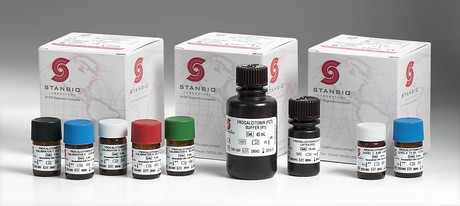EKF expands geographical reach of PCT test

In vitro diagnostics company EKF Diagnostics has expanded the distribution of its Procalcitonin LiquiColor test into Eastern Europe, the Middle East and APAC.
Procalcitonin (PCT) is a marker for bacterial infection and sepsis, a condition that has grown in awareness in recent years. PCT is recognised as an important adjunct marker in sepsis diagnosis which aids in the differentiation between viral and bacterial infections. Sepsis can quickly develop into severe sepsis and septic shock — conditions associated with signs of end-stage organ damage and hypotension. At this stage, risk of death is high and increases drastically the longer the initiation of treatment is delayed. However, if a patient receives antimicrobial therapy within the first hour of diagnosis, their chances of survival are close to 80%. This short window is therefore often referred to as ‘the golden hour’.
EKF’s Stanbio Chemistry PCT assay can be used in conjunction with other tests to rapidly assess initial severity of sepsis within the golden hour. As it provides quantitative results within 10 min, it helps physicians to monitor treatment and track improvements over time. The test is CE marked and will shortly receive FDA approval. It is an open-channel immunoturbidimetric assay that can run with multiple sample types, making is suitable for many hospital laboratories.
“We have started to see significant interest in Asia Pacific for PCT. Here we are working closely with three major distributors covering the Philippines, Indonesia and Vietnam to introduce PCT into hospitals,” said Trevor McCarthy, EKF’s sales manager.
“As awareness about the severity of sepsis and the importance of early detection grows, we anticipate more and more interest globally in this product. FDA approval will help us build our brand, both in the Asian market and further afield.”
Blood test could be used to diagnose Parkinson's earlier
Researchers have developed a new method that requires only a blood draw, offering a non-invasive...
Cord blood test could predict a baby's risk of type 2 diabetes
By analysing the DNA in cord blood from babies born to mothers with gestational diabetes,...
DNA analysis device built with a basic 3D printer
The Do-It-Yourself Nucleic Acid Fluorometer, or DIYNAFLUOR, is a portable device that measures...




